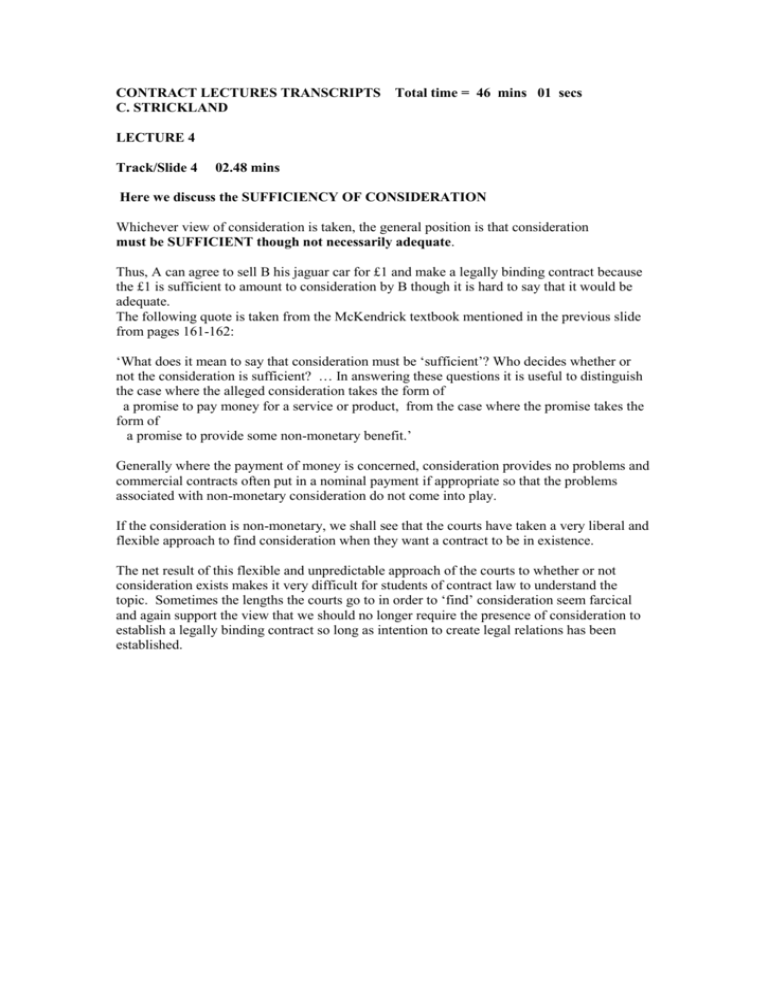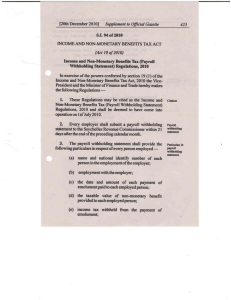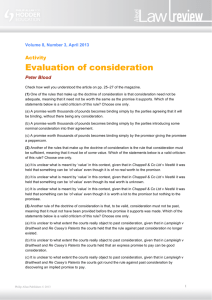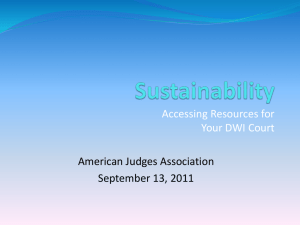Transcript of this slide
advertisement

CONTRACT LECTURES TRANSCRIPTS Total time = 46 mins 01 secs C. STRICKLAND LECTURE 4 Track/Slide 4 02.48 mins Here we discuss the SUFFICIENCY OF CONSIDERATION Whichever view of consideration is taken, the general position is that consideration must be SUFFICIENT though not necessarily adequate. Thus, A can agree to sell B his jaguar car for £1 and make a legally binding contract because the £1 is sufficient to amount to consideration by B though it is hard to say that it would be adequate. The following quote is taken from the McKendrick textbook mentioned in the previous slide from pages 161-162: ‘What does it mean to say that consideration must be ‘sufficient’? Who decides whether or not the consideration is sufficient? … In answering these questions it is useful to distinguish the case where the alleged consideration takes the form of a promise to pay money for a service or product, from the case where the promise takes the form of a promise to provide some non-monetary benefit.’ Generally where the payment of money is concerned, consideration provides no problems and commercial contracts often put in a nominal payment if appropriate so that the problems associated with non-monetary consideration do not come into play. If the consideration is non-monetary, we shall see that the courts have taken a very liberal and flexible approach to find consideration when they want a contract to be in existence. The net result of this flexible and unpredictable approach of the courts to whether or not consideration exists makes it very difficult for students of contract law to understand the topic. Sometimes the lengths the courts go to in order to ‘find’ consideration seem farcical and again support the view that we should no longer require the presence of consideration to establish a legally binding contract so long as intention to create legal relations has been established.











